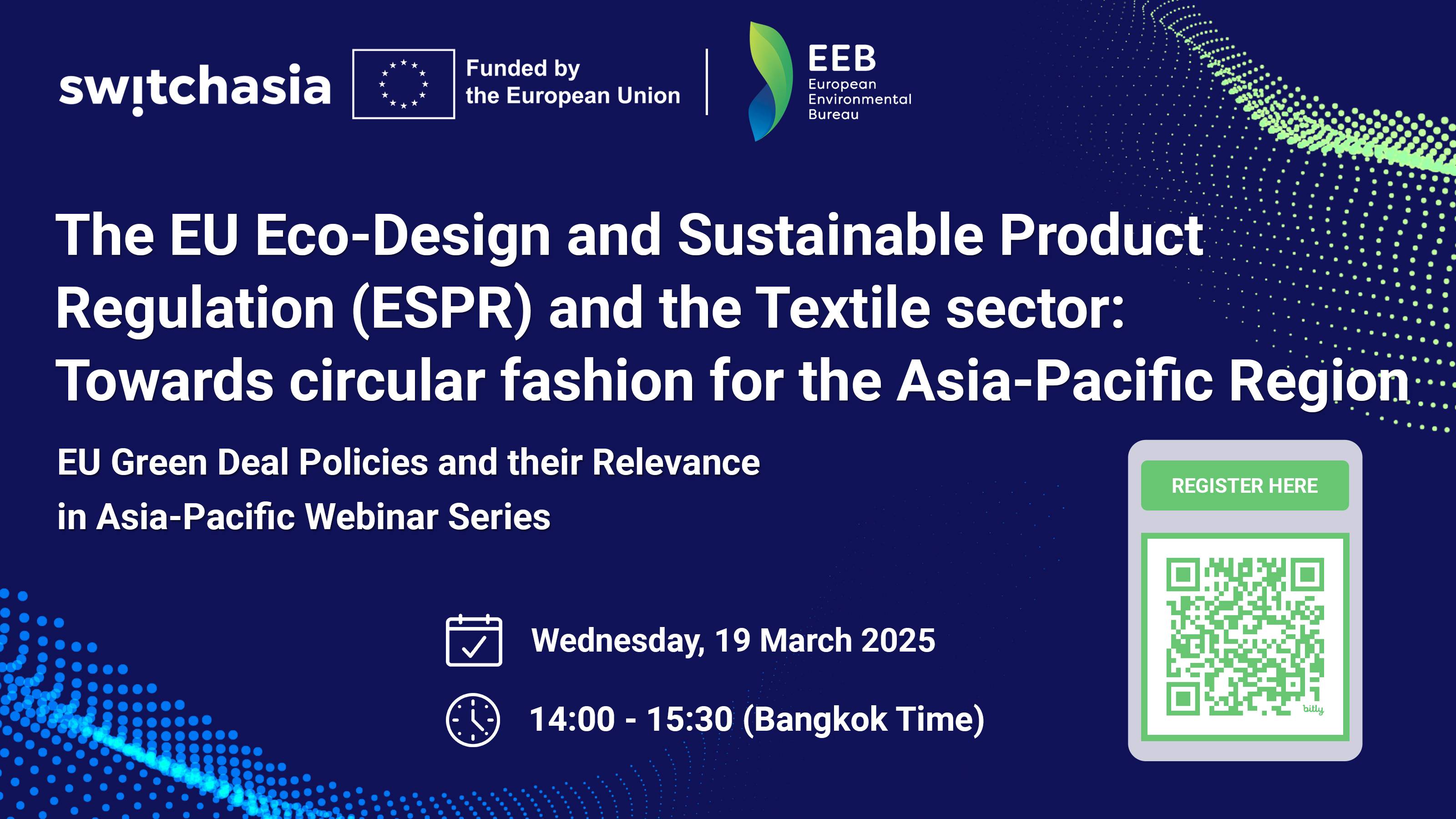
WHEN: 19 March 2025 I TIME: 14:00 - 15:30 (Bangkok Time) I Watch the Recording HERE
Background:
The EU Strategy for Sustainable and Circular Textiles addresses the production and consumption of textiles, whilst recognising the importance of the textiles sector. Textiles are the fabric of everyday life. We use them in clothes and furniture, medical and protective equipment, buildings and vehicles. However, urgent action is needed as their impact on the environment continues to grow. The consumption of clothing and footwear is expected to increase by 63% by 2030, from 62 million tonnes now to 102 million tonnes in 2030 [1]. In the EU, the consumption of textiles, most of which are imported, now accounts on average for the fourth highest negative impact on the environment and on climate change and third highest for water and land use from a global life cycle perspective [2].
The EU Eco-Design and Sustainable Product Regulation is the centre piece of the Circular Economy action plan and a key element to the EU Strategy for Sustainable and Circular Textiles. It aims to make products more environmentally friendly throughout their life cycle. It sets stricter ecodesign requirements for a wider range of products compared to the previous regulation. This will not only reduce environmental impact but also create a level playing field for businesses in the EU and potentially set global standards for sustainability.
The ESPR provides the legal basis for setting the ecodesign requirements, however these requirements will vary per product category. In delegated acts, the specific requirements per product category will be outlined, these are still under development and are planned to be published by 2026. Product categories with a significant environmental impact will be prioritized. Textiles are a key focus area and will be included the first release of the ESPR framework.
Products placed on the EU market will need to follow ecodesign requirements addressing the following 9 elements:
- Durability and reliability
- Reusability
- Upgradability, reparability, maintenance and refurbishment
- Presence of substances of concern in products
- Energy and resource efficiency
- Products’ recycled content
- Product remanufacturing and recycling
- Carbon and environmental footprints
- Expected generation of waste material
Selected product categories will need follow information requirements through a Digital Product Passport (DPP). This is basically a digital record containing key information about the product's entire lifecycle. The purpose of a Digital Product Passport is to enhance transparency, traceability, and sustainability throughout its lifecycle and support the practices of the circular economy such as repair, reuse, repurposing, redistribution or recycling and bans on destruction of unsold products that would facilitate activities keeping materials withing production and consumption system.
The EU seeks to strengthen the sustainability of global value chains and provide an opportunity for more sustainable production in partner countries, which will accelerate the achievement of the Sustainable Development Goals of the UN Agenda 2030, particularly SDG 12: Ensure sustainable consumption and production patterns.
Rules will apply equally to all products placed on the EU market, whether these originate in the EU or not. The proposed mechanism ensures a level playing field for businesses aiming to sell their products on the EU market – enabling sustainability frontrunners, and those businesses that are investing in sustainability, to move to the fore.
Webinar Session:
The EU SWITCH-Asia Policy Support Component and the European Environment Bureau, are convening the webinar, The EU Eco-Design Sustainable Product Regulation (ESPR) and the Textile Sector: impact and opportunities for the Asia-Pacific region to:
- Present the EU ESPR
- Understand what is means for the Asia-Pacific region, in particular for the textile sector
- Present what is expected in the coming years, what opportunities will arise from this new Regulation and more generally from an eco-design perspective for the textile value chain.
Moderators:
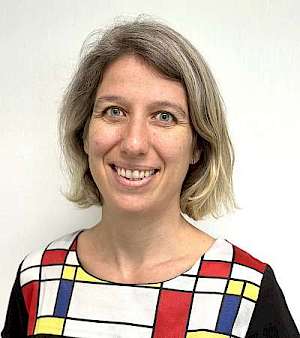 Elodie MARIA-SUBE, Expert on EU policy development and partnership building at the SWITCH-Asia Policy Support Component
Elodie MARIA-SUBE, Expert on EU policy development and partnership building at the SWITCH-Asia Policy Support Component
Elodie is specialized in European Affairs related to topics of circular economy, SCP, climate change and environmental management, and has extensive experience in stakeholder consultation and engagement at the EU level, as well as with high-level officials in Ministries of Environment and Finance in Asia. For over a decade, Elodie has worked in South and South-East Asia on environment and climate change. She is currently leading the SWITCH-Asia Technical Advisory project on Sustainable/ Green Public Procurement for Transformation.
Speakers:
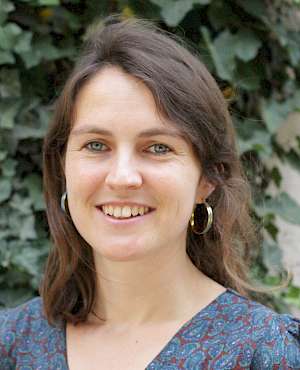 Emily MACINTOSH, Senior Policy Officer for Textile, European Environmental Bureau (EEB)
Emily MACINTOSH, Senior Policy Officer for Textile, European Environmental Bureau (EEB)
Emily Macintosh is a Senior Policy Officer at the European Environmental Bureau (EEB), the largest network of environmental citizens’ organisations in Europe with over 185 members in more than 41 countries. Since 2018, she has been working on advocacy for resource use reduction and sufficiency approaches to EU textiles policies. Before focusing on textiles, she worked in the EEB’s communications team on nature and agriculture topics, and held previous roles in Brussels, including at the European Parliament. Emily’s educational background is in journalism.
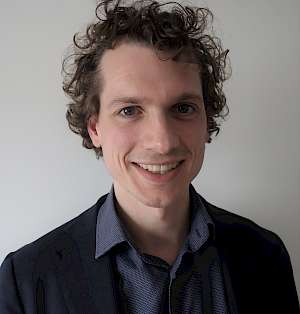 Carsten WENTINK, Policy officer at the European Commission, DG Environment
Carsten WENTINK, Policy officer at the European Commission, DG Environment
Carsten Wentink is an expert in circular economy and sustainable product policy. He is a policy officer at the European Commission, DG Environment, focusing on textiles under the Ecodesign for Sustainable Products Regulation.
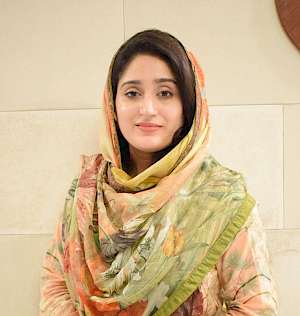 Zainab NAEEM, Head of Ecological Sustainability & Circular Economy, Sustainable Development Policy Institute (SDPI)
Zainab NAEEM, Head of Ecological Sustainability & Circular Economy, Sustainable Development Policy Institute (SDPI)
Zainab Naeem is a PhD scholar in Environmental Sciences with expertise in circular economy, climate resilience, and environmental diplomacy. At SDPI, she leads research and policy advocacy on circularity in plastics, used-textiles trade, and sustainable resource management. She has spearheaded projects on plastic waste scoping, corporate sustainability reporting, and water stewardship, while also facilitating capacity-building on carbon markets, urban resilience, and climate communications.
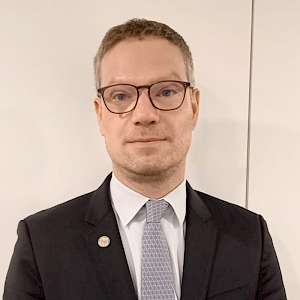 Mark DRAECK, Chief Technical Advisor, Circular Economy and Resource Efficiency Unit, UNIDO
Mark DRAECK, Chief Technical Advisor, Circular Economy and Resource Efficiency Unit, UNIDO
Since 2021 Mark Draeck acts as the Chief Technical Advisor on the EU and Finland funded SWITCH2CE project (https://www.switchtocircular.eu/) to support circular economy practices in the plastic, textile and ICT value chains, with country focus on Bangladesh, Egypt and Morocco. Mark joined UNIDO in Vienna, Austria in 2010 as an Industrial Development Officer in the Department of Energy, and managed a portfolio of technical cooperation projects in Africa, Asia, MENA and Eastern Europe on renewable energy technologies and energy efficiency practices, clean technology innovation, electric mobility and sustainable cities. Before joining UNIDO, Mark worked as an Energy Policy Advisor for the Flemish Government in Brussels, Belgium, and as a Carbon Group Manager in the consulting sector in London, UK. Mark holds a Master in Biological Sciences from the University of Leuven, a degree in Environmental Management from Ghent University, and an MBA certificate from Frankfurt School of Finance and Management.
 René VAN BERKEL, Co-convenor(ACEBA); Senior Expert (EU SWITCH Asia PSC); international faculty (Thammasat University); and member (IRP)
René VAN BERKEL, Co-convenor(ACEBA); Senior Expert (EU SWITCH Asia PSC); international faculty (Thammasat University); and member (IRP)
Dr René Van Berkel is a leading international expert in circular economy and resource efficiency, currently serving as co-convenor for the ASEAN Circular Economy Business Alliance, senior circular economy expert for EU SWITCH Asia Policy Support Component, international faculty of School of Global Studies of Thammasat University and (since 2025) member of the International Resource Panel. René has over 35 years of professional experience in pioneering and implementing SCP practices and policies in manufacturing and other productive sectors in across Asia, Australia, Europe and globally. Previously he served in various roles in the United Nations Industrial Development Organization in India, Indonesia and Austria, Curtin University of Technology in Australia and the University of Amsterdam in The Netherlands.
Agenda
|
19 March 2025 |
|
|
14:00 |
Introduction to the Webinar
|
|
14:05 |
EU Eco-Design Sustainable Product Regulation (ESPR) and the Textile Sector
|
|
14:20 |
EU Eco-Design Sustainable Product Regulation (ESPR) and the Textile Sector: Impact and Opportunities in the Asia-Pacific region Moderated by Elodie MARIA-SUBE, Key Expert on EU policy development and partnership building, SWITCH-Asia Policy Support Component
|
|
15:00 |
Q&A |
|
15:25 |
Concluding Remarks and Next Steps
|
[1] European Environment Agency (EEA) (2019) Textiles and the environment in a circular economy
[2] EEA (2022) Textiles and the environment: the role of design in Europe’s circular economy


